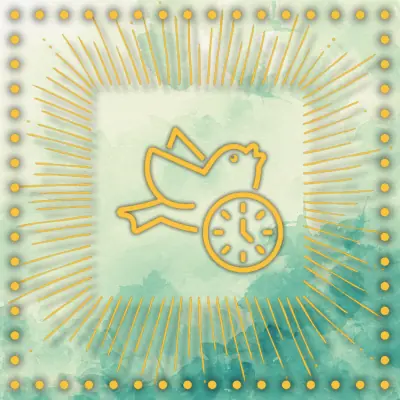Love is a many-splendored thing, but it’s not always a bed of roses. Speaking of flowers, remember that movie The War of the Roses? If you’ve seen it, you know that what starts out as a wonderful love story escalates into a feud to end all feuds—with the demise of the marriage between Kathleen Turner and Michael Douglas and their divorce turning ugly. Like, really ugly.
The film is a comedic depiction of a very real and common issue—marital problems. Marriage is a lifetime commitment that requires work, understanding, and compromise. Just like a flower, it needs care and attention to survive and thrive. While ups and downs are a completely natural part of any romantic relationship, there are times when the challenges become too overwhelming for a couple to handle between themselves—they need a competent referee.
That’s where marriage counseling comes into the picture and could be the ace up your sleeve when for your relationship needs. So, how do you know when it’s time to throw a flag on the field and blow the whistle for help? We’re going to go over the telltale signs that signal you and your spouse might benefit from professional intervention and why seeking help early can be your relationship’s saving grace.
Note: If you want to take a look at updated marriage and divorce statistics in the United States, we highly recommend you read our breakdown.
Recognizing the Signs
Before things spiral out of control and you end up hanging onto a swaying chandelier whose suspension is unraveling from your weight (a scene in The War of the Roses), you have to be able to recognize and understand the warning signs that your relationship is veering off the course. These red flags are signals that your marriage may benefit from an impartial, external perspective and strategies a trained and licensed marriage counselor can provide. So, what are these sometimes glaring signals that shouldn’t be ignored or overlooked?

Constant Arguing
Do you find yourself constantly arguing with your spouse over the tiniest things? If you are sweating the small stuff, this could be a wake-up call that there are deeper underlying issues that need to be addressed. Constant arguing can lead to a toxic environment that erodes even the strongest partnership.

Emotional Distance
When saying or hearing “I love you” becomes a rarity and cuddling on the couch feels like it hasn’t happened in forever, emotional detachment may have set in. If you or your spouse is emotionally checked out, it’s a sure sign that your marriage might be in trouble.

Infidelity or Trust Issues
Once that oh-so-sacred bond of trust is broken, it can be challenging to rebuild. If either partner has been unfaithful or if trust issues have crept their way into your relationship, an experienced marriage counselor can help you work through those feelings—if that’s even possible. Infidelity is not easy to come back from, but it is not uncommon for couples to work through it with professional help.

Lack of Communication
Open communication is the cornerstone of any successful relationship. If you find that you and your spouse have become like two ships passing in the night, with barely any interaction and a lack of conversations beyond taking the garbage out, counseling should be considered.

Financial Struggles
Money is one of the leading causes of stress in relationships—whether you’re constantly arguing about finances or feeling the crushing weight of debt, a marriage counselor can provide practical advice and effective coping strategies.

Life Changes
Significant life events like the birth of a child, job loss, or the death of a loved one can put an enormous strain on a relationship. Counseling can offer ways to help couples cope during any of these challenging times.
Advantages of Seeking Help Early
Taking preventative action can sometimes be the key to saving a relationship—recognizing that problems exist and getting help before they grow out of control can have lots of benefits. Below, we examine the positive impacts that early intervention can have on your marriage.

Preventing Escalation
Like the smallest crack in a dam, minor issues can develop into major ones if not addressed. By seeking counseling early, you can nip problems in the bud, preventing them from escalating into massive problems.

Emotional Well-being
A tumultuous marriage can wreak havoc on your emotional health and well-being. Seeking out professional help early not only improves your relationship but also your overall mental state of mind.

Skill-Building
Counseling provides an arsenal of coping mechanisms and communication skills that can serve you well throughout your relationship—these skills can be priceless when it comes to maintaining a healthy, happy, and loving partnership.

Renewed Commitment
Sometimes, counseling can act as a reset button for your marriage—like rebooting a computer. It can restart your love, reaffirm your vows to each other, and remind you both why you chose to be together in the first place!

Securing a Strong Foundation
If you’ve recently gotten married or are facing a transitional phase in your life, counseling can provide a strong foundation for your relationship to grow and flourish. There doesn’t have to be a crisis for you to go to a marriage counselor or couples therapy—it’s great to have an impartial sounding board! Think of it as couples maintenance; just like you take your car in for an oil change to keep it running smoothly, you can do the same for your relationship.
Why Counseling Helps
There have been lots of studies on various aspects of marriage and couples counseling and why it’s so helpful!

Effectiveness of Marriage Counseling
Studies have generally shown that marriage counseling can improve relationship satisfaction. For instance, a meta-analysis published in the Journal of Marital and Family Therapy suggests that couples therapy can positively impact relationship satisfaction, individual mental health, and other related outcomes.

Signs Indicating the Need for Counseling
While formal studies specifically outlining the signs may be limited, abundant clinical literature and anecdotal evidence suggest that constant arguing, emotional detachment, and other relational issues can indicate the need for professional help.

Early Intervention
Research suggests that early intervention is key. For example, a study in the Journal of Family Psychology found that couples who seek therapy earlier rather than later have better outcomes. Early intervention may prevent problems from escalating and becoming more complicated to treat.

Coping Mechanisms and Skill Building
Studies have also shown that couples who undergo counseling often learn valuable communication and conflict-resolution skills that serve them well in the long run. This aligns with the broader psychotherapy literature that shows skill acquisition is a significant benefit of therapeutic intervention.

Financial Stress and Relationships
Numerous studies have shown that financial stress can significantly impact marital satisfaction. In these cases, targeted financial counseling along with couples therapy can be beneficial.

Life Transitions
There are also studies indicating that life transitions, such as having a baby, can strain marriages–counseling that prepares couples for these transitions can be particularly beneficial.
Every relationship is unique–marriage counseling can offer personalized advice and coping strategies tailored to the specific needs of each couple.
Takeaways
The decision to seek help from a marriage counselor is in no way an admission of failure or a sign of giving up; it’s the exact opposite. You are being proactive in keeping your nuptials happy and, by doing so, securing a better future together.
If you’re experiencing any of the signs discussed above, it might be time to call in a professional. Remember, the sooner you address issues, the more likely you are to find solutions and fixes that bring you back to where you want to be—in a happy, loving marriage.
